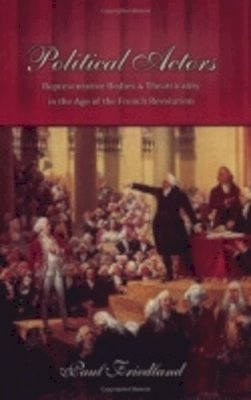
Political Actors: Representative Bodies and Theatricality in the Age of the French Revolution
Paul Friedland
From the start of the French Revolution, contemporary observers were struck by the overwhelming theatricality of political events. Examples of convergence between theater and politics included the election of dramatic actors to powerful political and military positions and reports that deputies to the National Assembly were taking acting lessons and planting paid "claqueurs" in the audience to applaud their employers on demand. Meanwhile, in a mock national assembly that gathered in an enormous circus pavilion in the center of Paris, spectators paid for the privilege of acting the role of political representatives for a day.
Paul Friedland argues that politics ... Read more
According to Friedland, this new form of representation brought about a sharp demarcation between actors—on both stages—and their audience, one that relegated spectators to the role of passive observers of a performance that was given for their benefit but without their direct participation. Political Actors, a landmark contribution to eighteenth-century studies, furthers understanding not only of the French Revolution but also of the very nature of modern representative democracy.
Show LessProduct Details
About Paul Friedland
Reviews for Political Actors: Representative Bodies and Theatricality in the Age of the French Revolution
